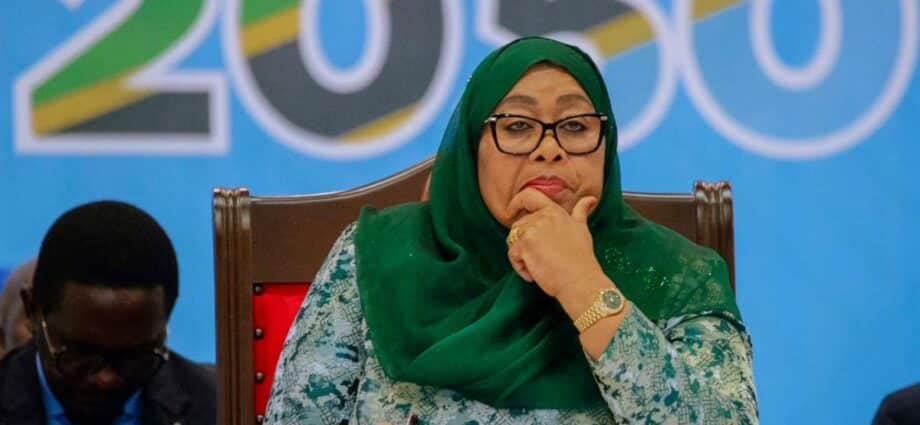My previous discussions explored the path towards achieving a prosperous future for Tanzania by 2050. I’ve envisioned a Tanzania free from poverty, a nation where every citizen can thrive. I then spoke of double-digit GDP growth as a rocket that would launch Tanzania into the economic prosperity orbit. This article deals with another missing piece in Tanzania’s development puzzle: the urgent need for a public service overhaul.
When it comes to public services, we are not unaware of our painful experiences. Water supply can be cut off for months. Power can be rationed for months. The quality of public transportation systems like buses and trains is abysmal. Sector after sector, the same story of mediocrity abounds. We have normalised this situation: ‘Oops, we don’t have enough buses for DART’, ‘We don’t generate enough electricity’, or ‘It is a drought season, we can’t supply water for a month or two’. That’s the Tanzania we grew up in, but God forbid that we leave that Tanzania for our children.
To understand the necessity for a public service overhaul, a review of some indices might help. Take the last World Bank Doing Business Index, for instance, where Tanzania sat at a distant 141st. That means cumbersome procedures for starting businesses, acquiring electricity connections, and navigating essential permits. As a result, Tanzanians waste much time dealing with bureaucratic red tape instead of focusing on innovation.
The misery index doesn’t end there. Our ranking on the Human Development Index (HDI) is at a disappointing 167th place out of 187. That means we fail our people by denying them the education and healthcare they deserve. The ranking perfectly reflects the suffering that Tanzanians endure.
But that suffering is both unnecessary and a drain on their potential. We are surrounded by three of the largest freshwater lakes in the world and a region like Morogoro has 143 rivers feeding its fertile valleys, so why are our women carrying buckets of water around, while they could be doing something productive? We have normalised this absurdity to the point that even communities living a few kilometres from major sources of water still suffer the same fate.
A public service revolution is not just about fixing problems, it’s about unlocking Tanzania’s true potential. Efficient and equitable access to clean water, reliable power, quality education, and robust healthcare, empower citizens. When businesses thrive, they attract investments and create jobs. The nation would then climb the ranks of global competitiveness indices, becoming a more attractive destination for international partnerships.
Years ago, we envisioned a country blanketed by thousands of kilometres of fibre optic cables. We thought of schools, hospitals, and businesses – all humming with the thrum of lightning-fast broadband. Two decades later, we’re stuck with barely 15,000 kilometres in our NICTBB infrastructure when China just installed 4.74m kilometres last year! Just imagine the revolution that could have been. A thriving digital economy and innovation unleashed. But here we are, scraping by when there’s absolutely no reason to do so. A public service overhaul isn’t just about fixing leaks, it’s about building the digital infrastructure that catapults Tanzania into the 21st century.
Our vision for 2050 is a call to action. Revolutionising public service would bridge the gap between our current state and the prosperous future we envision. We must be transformed from a nation where citizens struggle to one where they flourish. The resources are at our disposal. If we need to build hundreds of thousands of decent houses for our people – everything is available right here. We just need to act.
There is a silver lining in doing all this: A public service revolution is a GDP goldmine. Adding just 5 gigawatts of power alone could boost per capita GDP by USD 500 within five years. Affordable housing? Building 500,000 units would add USD 200 per capita in five years too. Multiplier effects not considered. There is untapped potential for explosive growth in every sector, waiting to be unlocked by smart public service investments.
And that is how serious nations achieve economic miracles. When you don’t mess around, you will supercharge your public services like on steroids. You will publish your data openly because transparency keeps you committed to excellence. And that answers why our government institutions don’t have the necessary figures on their websites. You must write them letters, not emails, to get anything from them. But we know their official secrecy is designed to protect the officials and not the secrets.
We must take life seriously. We cannot live in big cities, yet water taps are lotteries, spewing nothing but disappointment; power outlets taunt with the promise of electricity, but often deliver darkness; and fancy BRT lanes can’t even guarantee actual rides. This isn’t life but purgatory, it feels like we are paying for sins committed in previous lives.
This madness should end now. Therefore, Vision 2050 isn’t a dream but a lifeline. Tanzania’s potential simmers beneath the surface: a wealth of resources, waiting to be unleashed. However, a functional public service system is crucial. Tinkering won’t work. We need a complete overhaul of the system.















